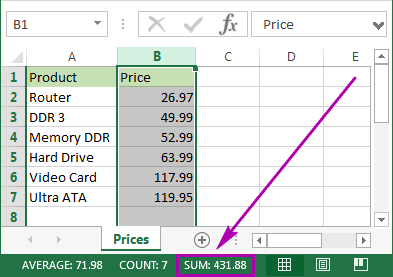Effective Ways to Lose 15 Pounds in 3 Months: A Practical Guide
Embarking on a weight loss journey can be both exciting and daunting, especially when your goal is to lose 15 pounds in just three months. This timeline is realistic; however, success requires an effective weight loss plan, commitment, and determination. Understanding how long it typically takes to lose weight and setting achievable weight loss goals can boost your motivation and keep you on track.
In this article, we will explore practical tips and strategies to help you achieve your weight loss goals safely and sustainably. You'll gain insights into nutrition, exercise, and mindset shifts that can facilitate lasting changes to your body. Whether you are just beginning your weight loss journey or looking to refine your approach, these effective weight loss methods can guide you toward achieving remarkable results.
By focusing on nutritional changes, meal planning for weight loss, and establishing a fitness routine, you can develop a comprehensive action plan. After reading, you will be equipped with the knowledge needed to kickstart your progress and ensure you're on the right path to your body transformation.
Let’s dive into effective ways to lose 15 pounds in 3 months!
Understanding Weight Loss Duration: Setting Realistic Expectations
Before starting your weight loss journey, it's essential to set realistic expectations regarding the timeline for achieving your desired results. While losing 15 pounds in three months is achievable, understanding the nuances of weight loss can help mitigate frustration and enhance accountability for weight loss, ensuring you maintain motivation throughout the process.
Realistic Weight Loss Timelines
The average weight loss speed for most individuals is about 1-2 pounds per week. Therefore, to achieve a weight loss of 15 pounds, you should aim for a sustainable approach that aligns with this timeline. Understanding the average weight loss speed will aid in establishing a feasible plan, allowing you to create a calorie deficit while focusing on healthy habits for weight loss.
Tracking Weight Loss Progress
Utilizing a weight loss calculator or keeping a food diary can significantly aid your weight loss journey. By tracking your caloric intake and physical activity, you can clearly see what strategies are working and what areas may need adjustment. This method significantly enhances your commitment to losing weight and helps you identify patterns in your food choices.
Realistic Goals for Weight Loss
When setting your weight loss goals, it's vital to establish short-term and long-term milestones. Breaking the ultimate goal of losing 15 pounds into smaller, manageable targets can make the process less overwhelming. For example, aim to lose 5 pounds in the first month. Recognizing achievements in weight loss will bolster your motivation and drive you to continue working toward your ultimate goal.
Building on these fundamentals, the next step is to explore effective weight loss strategies that will help you reach your targets.
Healthy Weight Loss Strategies: Nutrition and Meal Planning
Nutrition forms the bedrock of any successful weight loss journey. Establishing healthy food choices for weight loss will not only support your efforts to shed those pounds but also enhance your overall wellbeing. Let’s take a closer look at some essential dietary strategies.
Nutritional Changes for Weight Loss
Adopting balanced diets, such as low carb diets or the Mediterranean diet, significantly contributes to effective weight loss. These dietary plans promote nutrient-dense food, essential for maintaining energy levels while promoting a calorie deficit. Focusing on whole foods, and minimizing processed items, can transform your body and help you achieve weight loss success.
Meal Planning for Weight Loss
Creating a meal planning strategy is crucial for maintaining portion control for weight loss. By carefully organizing what you’ll eat throughout the week, you can avoid impulsive choices that often lead to unhealthy eating habits. Consider using tools like meal replacement options or prep the meals in advance to simplify the process and ensure consistent healthy choices.
Keeping a Food Diary
Maintaining a food diary is a powerful tool in tracking weight loss. Documenting everything you eat can provide insights into your eating patterns, recognize emotional triggers, and help you identify and overcome common weight loss mistakes. This accountability can strengthen your commitment to losing weight and enhance awareness of your progress.

Effective Exercise for Weight Loss: Creating a Fitness Routine
Incorporating a regular fitness routine is equally important in your quest for weight loss. It's not just about food; physical activity and weight loss go hand in hand. Let's explore effective workouts and exercises for weight loss that can help you achieve your goals.
Exercise Types for Effective Weight Loss
Understanding which types of workouts suit your lifestyle is key to crafting an effective fitness routine. Including a mix of cardiovascular exercises, such as running or cycling, alongside strength training can significantly increase calorie expenditure and lead to a more toned physique. Aim for at least 150 minutes of moderate-intensity aerobic activity weekly, combined with muscle-strengthening activities on two or more days a week.
Common Mistakes in Fitness Regimens
When exercising for weight loss, many individuals fall into common pitfalls. Overtraining can lead to fatigue, while underestimating the importance of rest days may hinder recovery. It’s crucial to listen to your body and adjust your routine as needed to avoid burnout and manage stress effectively.
Finding Joy in Movement
Transforming your body goes beyond workouts; it’s about finding activities you genuinely enjoy. Engaging in fitness challenges for weight loss or participating in group classes can create a supportive environment while making your routine more enjoyable. This sense of community can serve as motivation for weight loss, helping you stay committed and enthusiastic about your progress.
Taking this concept further, let’s explore the psychological aspects of weight loss, focusing on mindset and accountability.
The Role of Mindset in Achieving Weight Loss Goals
Your mindset plays a crucial role in overcoming obstacles to weight loss. Cultivating a healthy weight loss mindset and adopting a positive attitude can significantly impact the success of your journey. Let’s delve into the mental aspects that contribute to sustainable weight management.
Motivation for Weight Loss
Finding motivation techniques for weight loss is essential. Set achievable milestones, celebrate your successes, and visualize the benefits of a healthier lifestyle. Engaging with weight loss community support groups can provide encouragement and accountability, further fueling your drive to reach your goals.
Understanding Emotional Triggers
Understanding emotional eating and recognizing when you are eating out of stress or boredom can help you break the cycle of unhealthy habits. Practicing mindfulness can aid in developing a healthier relationship with food, allowing you to make conscious choices that align with your weight loss goals.
Commitment to Losing Weight
Ultimately, sustaining long-term changes requires commitment and discipline. Developing a weight loss philosophy that aligns with your values and is informed by your personal experiences can create a sustainable blueprint for success. This ongoing commitment to understanding your body type and individual needs is vital for creating a personalized weight loss plan.

Real-life Examples: Success Stories in Weight Loss
Real-life success stories can provide immense inspiration, demonstrating the transformative power of commitment to losing weight. Connecting with others who have achieved their weight loss goals can underscore the importance of perseverance and motivation throughout your journey.
Learning from Others’ Weight Loss Journeys
Engaging with narratives from individuals who have successfully lost weight can offer valuable insights into their weight loss methods and strategies. Whether they have shifted their nutrition or adopted specific workout routines, their experiences can enlighten your path and reinforce your motivation.
Creating a Support System
Finding support for weight loss is paramount. Engage with friends or family who share similar fitness goals, or join online weight loss programs where you can connect with others pursuing weight loss together. Establishing this community can help maintain accountability and foster motivation during tougher periods of your weight loss journey.
Recognizing Your Achievements
As you progress, don’t forget to track your weight loss results and celebrate each milestone. Acknowledging your efforts and viewing the scale as your ally can help reinforce your commitment and inspire further improvements. Whether it’s hitting a new milestone or fitting into a smaller clothing size, recognizing achievements in weight loss builds a positive feedback loop reinforcing your motivation.
Q&A: Common Concerns About Losing 15 Pounds
It's natural to have questions as you embark on your weight loss journey. Below are some common inquiries regarding effective weight loss methods.
How long does it really take to lose 15 pounds?
Typically, if you lose an average of 1-2 pounds weekly, you can expect to reach your goal in approximately 7-15 weeks. This timeframe aligns with various effective weight loss strategies focusing on sustainable changes.
What are some common weight loss myths I should be aware of?
Some weight loss myths include quick fixes like fad diets, which are not sustainable long-term. Developing realistic habits and understanding nutrition are crucial instead of seeking quick-weight loss methods.
How can I stay motivated during my weight loss journey?
Staying motivated can involve setting realistic goals, celebrating small achievements, and connecting with a community of like-minded individuals. Engaging with support groups can provide encouragement and accountability, making the weight loss challenge more manageable.
Ultimately, losing 15 pounds in three months is achievable, provided you adopt a holistic approach that includes nutritional changes, regular exercise, and a positive mindset. By embracing this journey, you can transform your body and create sustainable healthy habits that last a lifetime.
